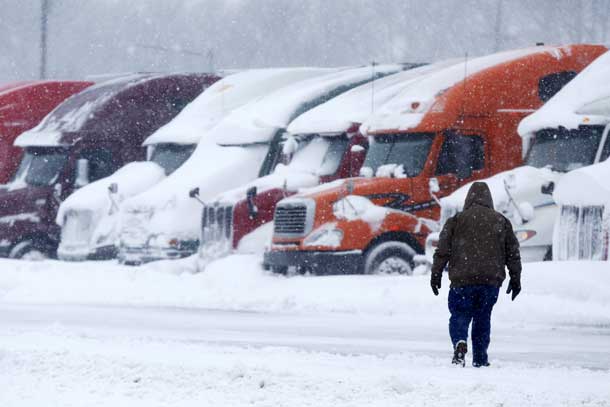 THUNDER BAY – Serious storms wreck havoc on the lives of countless people every year. Rainfall in Northwestern Ontario over the past six months have caused serious flooding in Thunder Bay and in Wawa. Ontario will quite likely see impact from Hurricane Sandy over the coming days.
THUNDER BAY – Serious storms wreck havoc on the lives of countless people every year. Rainfall in Northwestern Ontario over the past six months have caused serious flooding in Thunder Bay and in Wawa. Ontario will quite likely see impact from Hurricane Sandy over the coming days.
One of the keys to getting through periods of stormy weather is having a plan in place before it happens.
Right now, as Hurricane Sandy bears down on the eastern coast of the Northeast United States, officials are already preparing that in some parts of the area power could be out for as long as seven to ten days.
That would put a huge burden on the average family. Winter storms across Northwestern Ontario have the ability to impact communities and stretch resources to a great extent. Being prepared means you, and your family are safer.
Newark New Jersey in the United States has started the preparations for Hurricane Sandy. While the guidelines offered are for a hurricane, these guidelines would work for any major storm.
The City of Newark recommends the following safety measures to prepare for a hurricane:
- Make plans to secure your property. Permanent storm shutters offer the best protection for windows. A second option is to board up windows with 5/8” marine plywood, cut to fit and ready to install. Tape does not prevent windows from breaking.
- Install straps or additional clips to securely fasten your roof to the frame structure. This will reduce roof damage.
- Be sure trees and shrubs around your home are well trimmed.
- Clear loose and clogged rain gutters and downspouts.
- Consider building a safe room.
- Prepare a basic emergency supply kit which contains one gallon of water per person and food for at least three days, prescription medication for three days, a non-electric can opener, moist towelettes, garbage bags, flashlights and extra batteries, a battery-powered to receive weather reports, local maps, a first aid kit and a whistle to signal for help.
If a hurricane is likely in your area, you should:
- Listen to the radio or TV for information.
- Secure your home, close storm shutters, and secure outdoor objects or bring them indoors.
- Turn off utilities if instructed to do so. Otherwise, turn the refrigerator thermostat to its coldest setting and keep its doors closed.
- Turn off propane tanks.
- Avoid using the phone, except for serious emergencies.
- Ensure a supply of water for sanitary purposes such as cleaning and flushing toilets. Fill the bathtub and other large containers with water.
- The City of Newark will provide drinking water quality updates to residents.
- Do not park your car in a street that is likely to flood.
- Do not drive your car into a street that is flooded.
You should evacuate under the following conditions:
- If you are directed by local authorities to do so. Be sure to follow their instructions.
- If you live in a mobile home or temporary structure—such shelters are particularly hazardous during hurricanes no matter how well fastened to the ground.
- If you live in a high-rise building—hurricane winds are stronger at higher elevations.
- If you live on the coast, on a floodplain, near a river, or on an inland waterway.
- If you feel you are in danger.
If you are unable to evacuate, go to your safe room. If you do not have one, follow these guidelines:
- Stay indoors during the hurricane and away from windows and glass doors.
- Close all interior doors—secure and brace external doors.
- Keep curtains and blinds closed. Do not be fooled if there is a lull; it could be the eye of the storm – winds will pick up again.
- Take refuge in a small interior room, closet, or hallway on the lowest level.
- Lie on the floor under a table or another sturdy object.
Have Disaster Supplies on Hand
- Flashlight and extra batteries.
- Portable battery-operated radio and extra batteries.
- First aid kit and manual.
- Emergency food and water.
- Nonelectric can opener.
- Essential medicines.
- Cash and credit cards.
- Sturdy shoes.
Develop an Emergency Communication Plan
- In case family members are separated from one another during an earthquake (a real possibility during the day when adults are at work and children are at school), develop a plan for reuniting after the disaster.
- Ask an out-of-state relative or friend to serve as the “family contact.” After a disaster, it’s often easier to call long distance. Make sure everyone in the family knows the name, address, and phone number of the contact person.
For those in the path of Hurricane Sandy, once the storm is over, visit Tips from an Insurance Adjuster.








